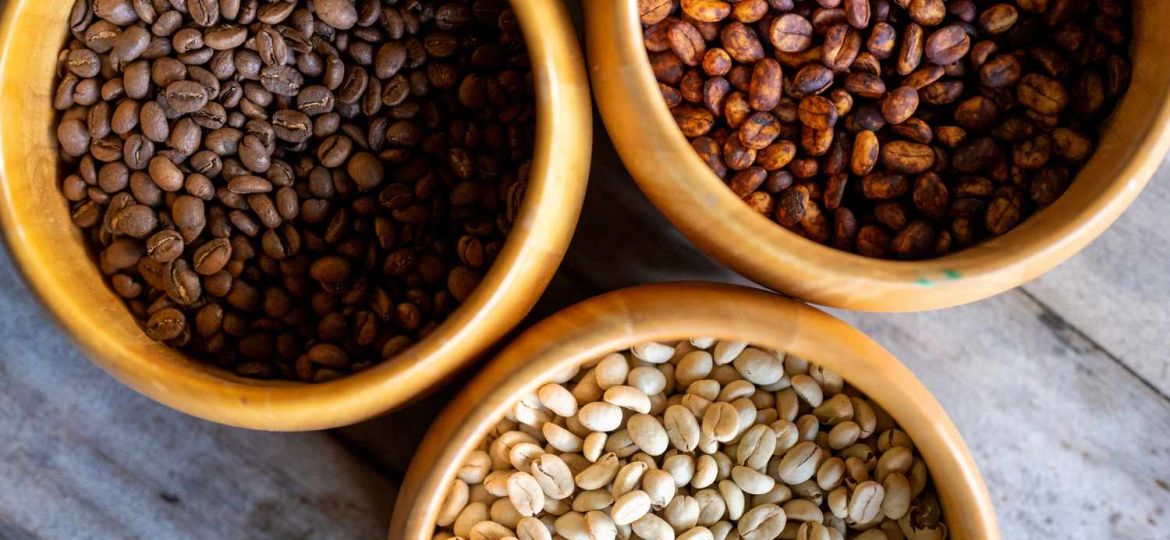
Coffee stands as one of the world’s most beloved beverages, celebrated not just for its ability to energize but also for its potential health benefits. Studies suggest that regular coffee consumption may reduce the risk of several diseases, including Parkinson’s, Alzheimer’s, and type 2 diabetes. However, the health impact of coffee can vary significantly based on the type of beans used and the brewing method.
The Quest for the Healthiest Coffee Beans
Not all coffee beans are created equal when it comes to health benefits. The term “healthy” in the context of coffee beans refers to their antioxidant levels, absence of contaminants, and the balance of caffeine content. Choosing the right coffee beans is crucial for maximizing these health benefits while minimizing potential harms.
Types of Coffee Beans
The two primary types of coffee beans, Arabica and Robusta, have distinct profiles affecting their health implications. Arabica beans are prized for their smoother, more aromatic flavor and generally contain less caffeine than Robusta beans. Lower caffeine content can be beneficial for those sensitive to caffeine’s effects, suggesting Arabica’s superiority in health terms.
Roasting and Its Effects on Health
The roasting process plays a pivotal role in determining the health benefits of coffee. Light, medium, and dark roasts offer varying levels of antioxidants and caffeine. Dark roasts, often perceived as stronger in flavor, actually contain less caffeine than lighter roasts and may offer more antioxidants, making them potentially healthier.
However, the roasting level also influences the concentration of certain beneficial compounds, indicating a balance must be struck to optimize health benefits.
The Best Roasts for Health
For those looking to maximize health benefits while enjoying their coffee, Arabica dark roasts emerge as the top recommendation. These roasts strike an optimal balance between minimizing caffeine content without sacrificing the rich flavor many coffee lovers seek.
Choosing Arabica dark roasts can help limit caffeine intake while still providing the antioxidants and other healthful compounds present in coffee.
Comparison of Brewing Methods
The method by which coffee is brewed can significantly affect its health benefits, notably in terms of antioxidant activity and essential nutrient content. Aeropress, French press, and drip brewing each offer unique advantages and drawbacks.
A study highlighted that coffee brewed using an Aeropress contains higher levels of antioxidants and retains more essential nutrients, such as magnesium and potassium, compared to coffee from a French press, which tends to have lower antioxidant levels due to the lack of filtering.
Drip brewing, with its use of paper filters, falls between these two methods, effectively removing diterpenes that can raise LDL cholesterol levels in heavy coffee drinkers.
The Healthiest Way to Brew Coffee
To maximize the health benefits of coffee, consider grinding the beans just before brewing to preserve flavor and health-promoting compounds. The optimal water temperature for brewing is between 195 to 205 degrees Fahrenheit, ensuring efficient extraction of polyphenols without compromising taste.
Using filtered methods like pour-over or drip can also enhance cardiovascular health by reducing the intake of cholesterol-raising compounds found in unfiltered coffee.
Mycotoxins in Coffee
Mycotoxins, particularly aflatoxin B1 and ochratoxin A, are common in coffee and pose health risks, including potential harm to the brain and kidneys. Up to 45% of commercially grown coffee beans may contain ochratoxin A. To minimize exposure, consumers can look for mycotoxin-free certifications or opt for wet-processed beans, which are less likely to harbor these toxins.
Specialty Coffees with Added Health Benefits
Innovative coffee blends like turmeric, bulletproof, egg, and mushroom coffee claim various health benefits. Turmeric coffee is noted for its anti-inflammatory properties, while bulletproof coffee, a blend of coffee, unsalted butter, and MCT oil, is popular among keto diet followers for its high-fat, low-carb profile.
Mushroom coffee, infused with medicinal mushrooms, is touted for energy and immune system support, though scientific evidence supporting these claims varies.
Nootropic and Vitamin-Enhanced Coffees
The emergence of nootropic and vitamin-enhanced coffees introduces a new category of healthful brews. These coffees are fortified with natural herbs, mushrooms, proteins, and vitamins aimed at improving cognitive function, energy levels, and overall health. While promising, the health benefits of these enhanced coffees warrant further research to substantiate claims.
Criteria for Selecting Healthy Coffee Beans
When selecting coffee beans, prioritize organic, mold-free, and wet-processed options to ensure the highest health benefits. Organic beans are grown without harmful pesticides, reducing your exposure to chemicals. Mold-free certifications indicate the absence of harmful mycotoxins, such as aflatoxin B1 and ochratoxin A, which can pose health risks. Wet processing, a method in which coffee cherries are washed to remove the outer fruit before drying, is effective in minimizing mycotoxin contamination.
Recommended Brands and Products
For health-conscious consumers, Life Extension Rainforest Blend coffee stands out due to its organic certification and the use of the HealthyRoast process. This process helps retain more antioxidants typically lost during roasting, offering a rich blend of health benefits along with lower acidity, making it gentler on the stomach.
FAQs
- Health Impacts of Caffeine: Moderate caffeine consumption can offer cognitive and metabolic benefits, but sensitivity varies by individual.
- Organic vs. Non-Organic Beans: Organic beans are grown without synthetic pesticides, potentially reducing exposure to harmful chemicals.
- Reducing Exposure to Mycotoxins: Opting for wet-processed, mold-free certified coffee can significantly lower the risk of mycotoxin exposure.
Conclusion
Selecting Arabica beans, particularly dark roasts, and using specific brewing methods such as Aeropress or drip brewing, can maximize the health benefits of coffee. The choice of organic, mold-free, and wet-processed beans further enhances these benefits, offering a safer and healthier coffee experience.
Balancing the enjoyment of coffee with health-conscious choices involves careful selection of beans and brewing methods. By prioritizing quality and processing methods, coffee enthusiasts can enjoy their daily brew with minimal health risks, making coffee a valuable part of a healthy lifestyle.









